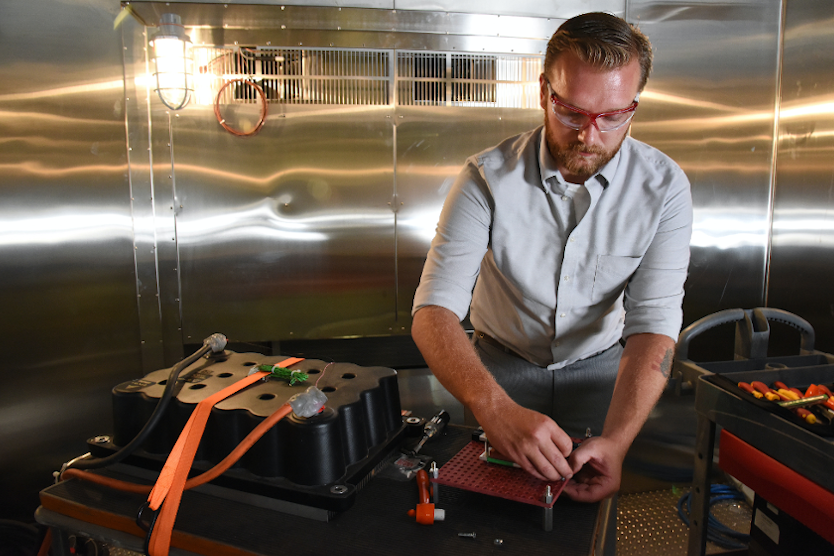
The Fraunhofer ISIT developed an alternative solvent-free, dry-coating process for the foils that halves energy costs and uses significantly less resources.
© Unsplash
There’s a strong drive towards greater industrial efficiency in Germany – especially where the production of lithium-ion batteries is concerned. The Fraunhofer Institute for Silicon Technology (ISIT) have been focusing their efforts on improving an energy-intensive process in battery manufacturing whereby the electrode foils are treated with solvents containing active materials during a repetitive, roll-to-roll coating and drying process.
The scientists have developed an alternative solvent-free, dry-coating process for the foils that halves energy costs and uses significantly less resources. Firstly, the team concocted a powder containing the active and conductive materials and a binding substance. Then they engineered a special technique for evenly distributing the powder onto the foil in much the same way as a master confectioner dusts sugar over a cake.
The patented technique not only frees-up space on the production line but also has the potential for up to 50 percent energy savings, as well as reducing chemical waste and overall production time.
"Dry coating technology has the potential to significantly reduce the costs and emissions of electrode production compared to the processes commonly used today,” says the project leader Jannes Ophey. “The process developed at ISIT thus makes a direct contribution to the development of economical and environmentally-friendly storage technologies for mobile and stationary applications."
The novel, dry-coating process will be presented at Hannover Messe Energy 2022 at the Schleswig-Holstein joint stand, Hall 13, Stand D 50.


